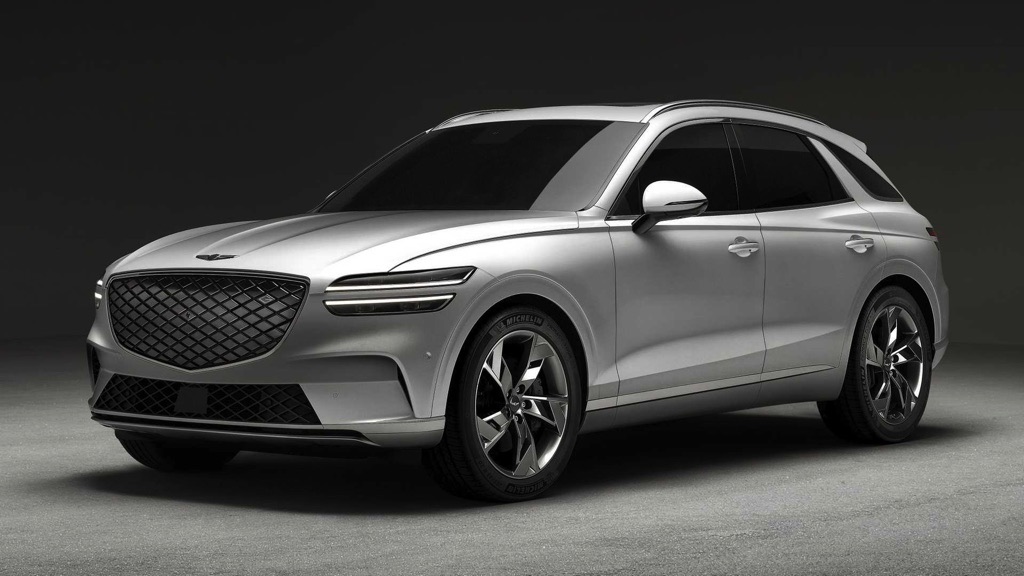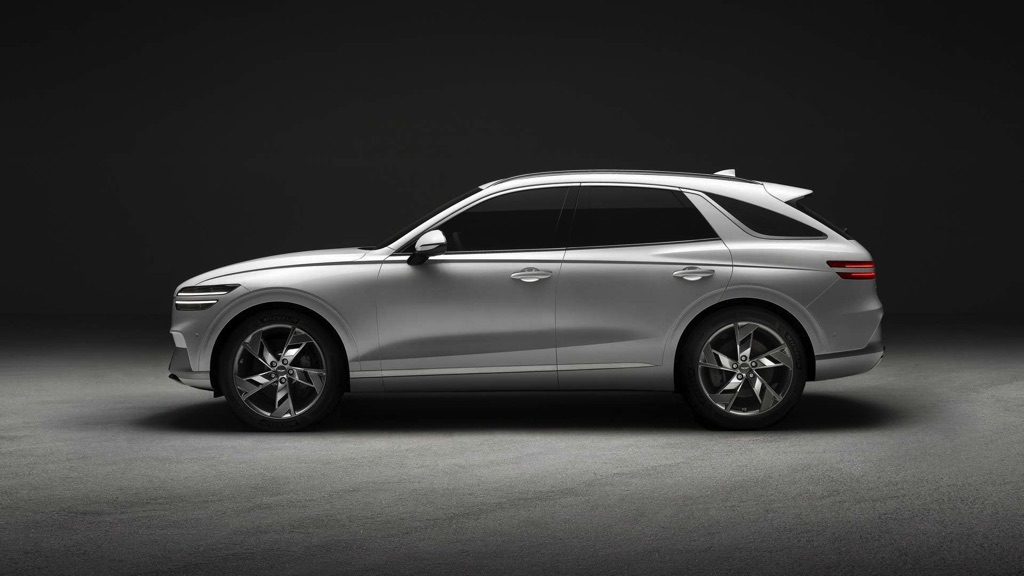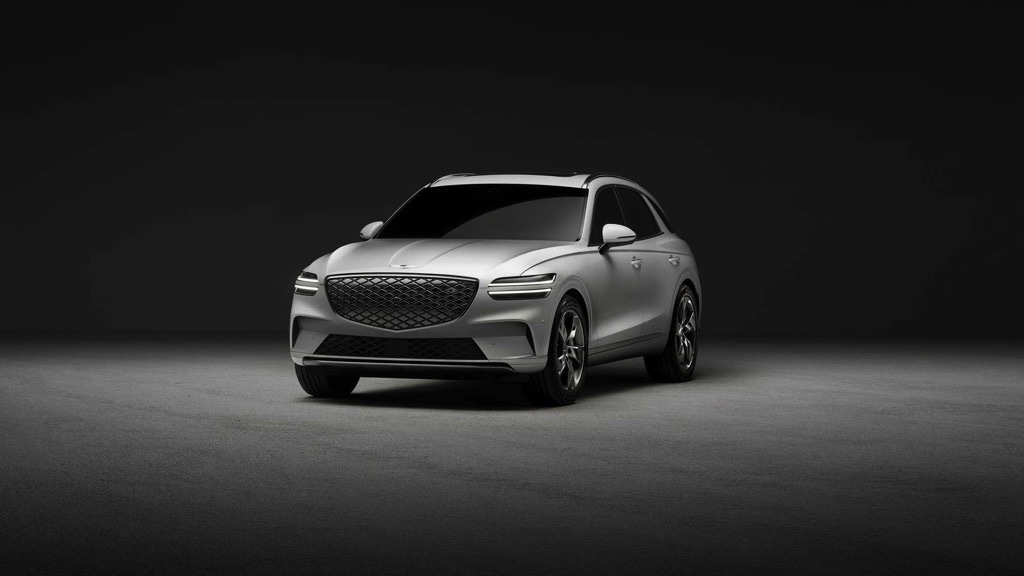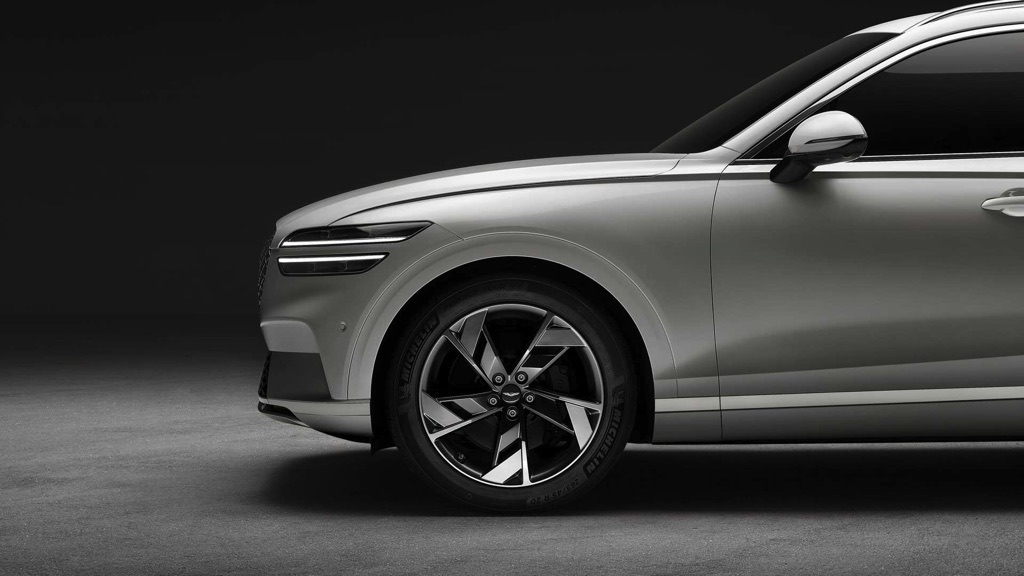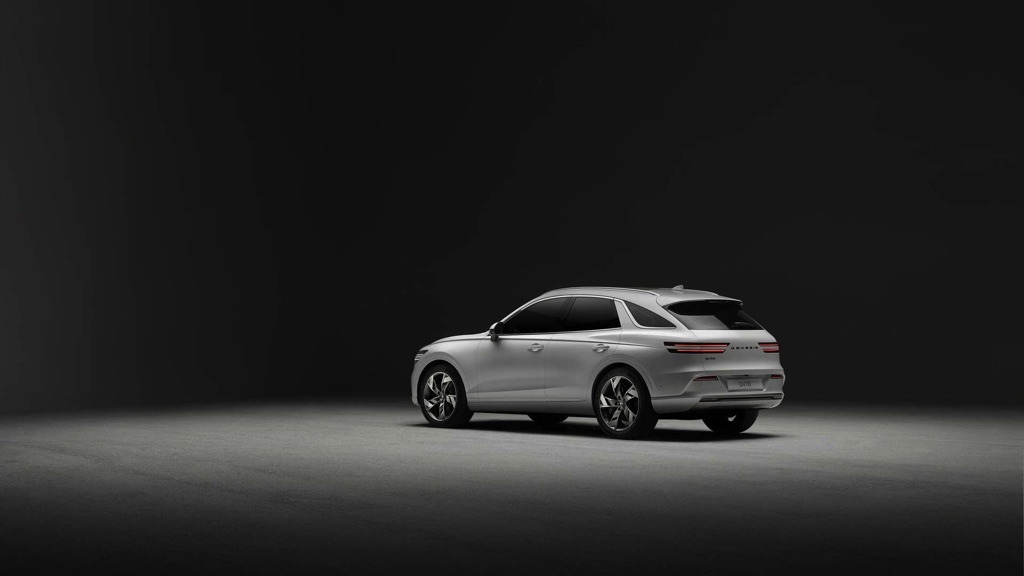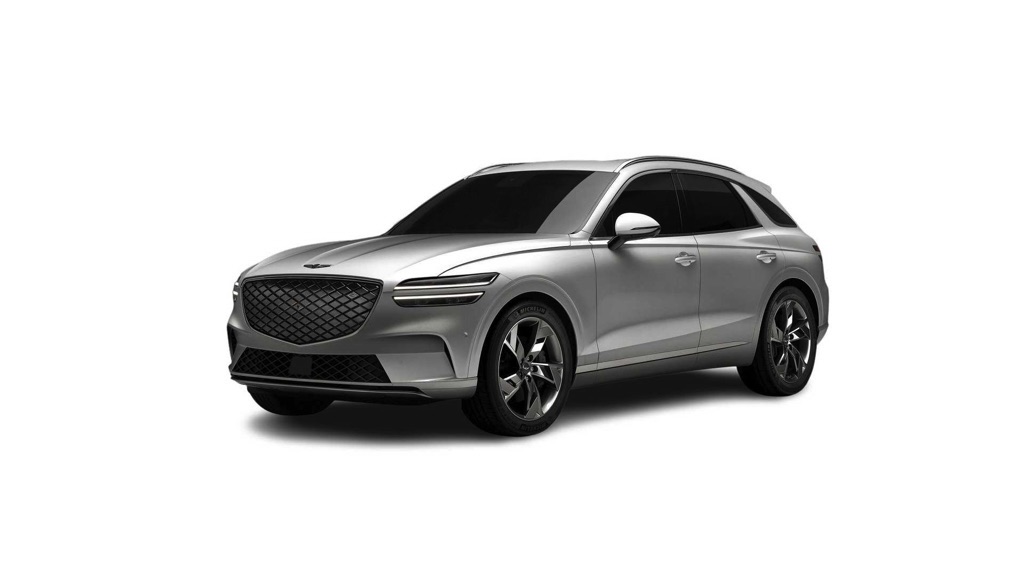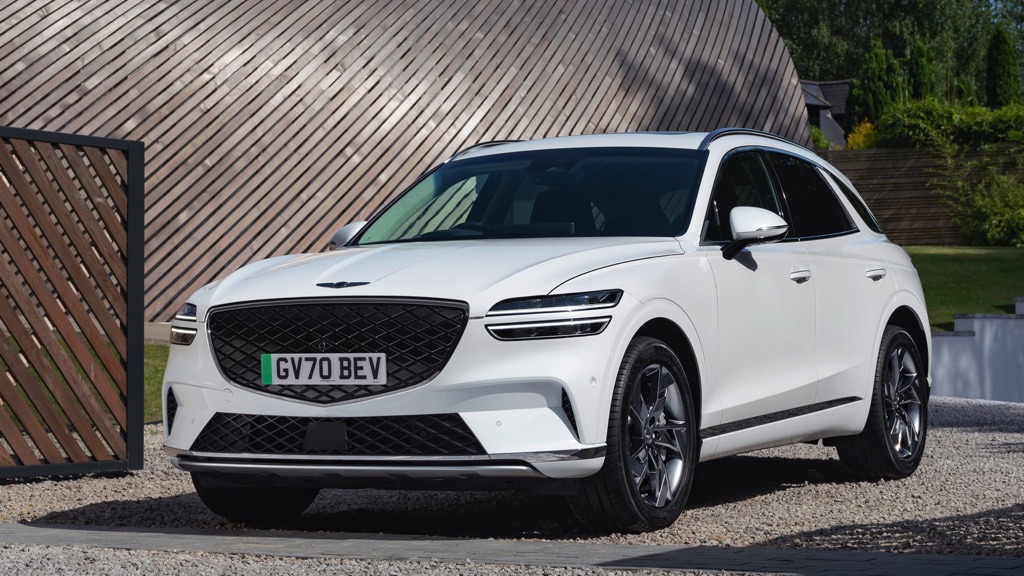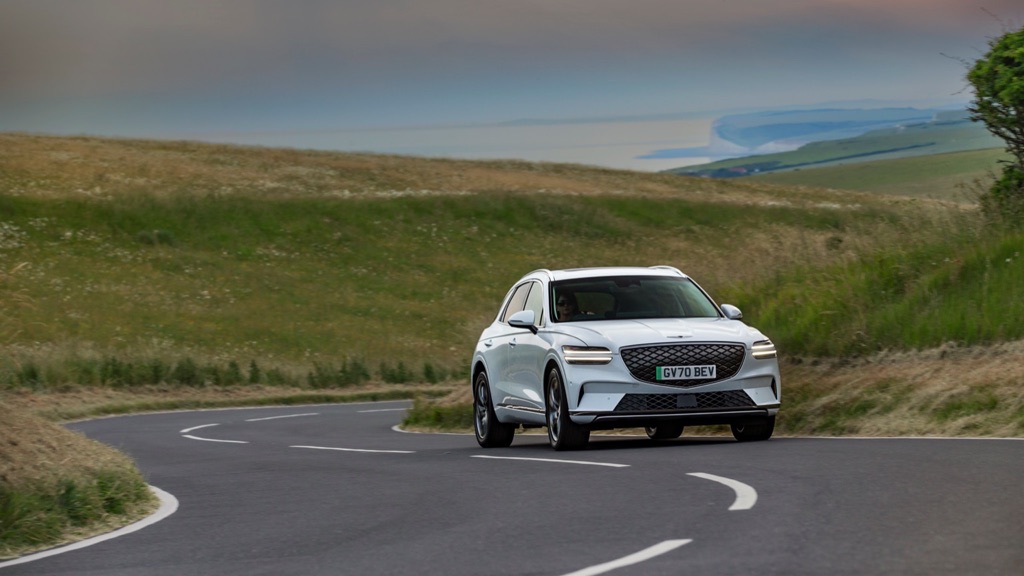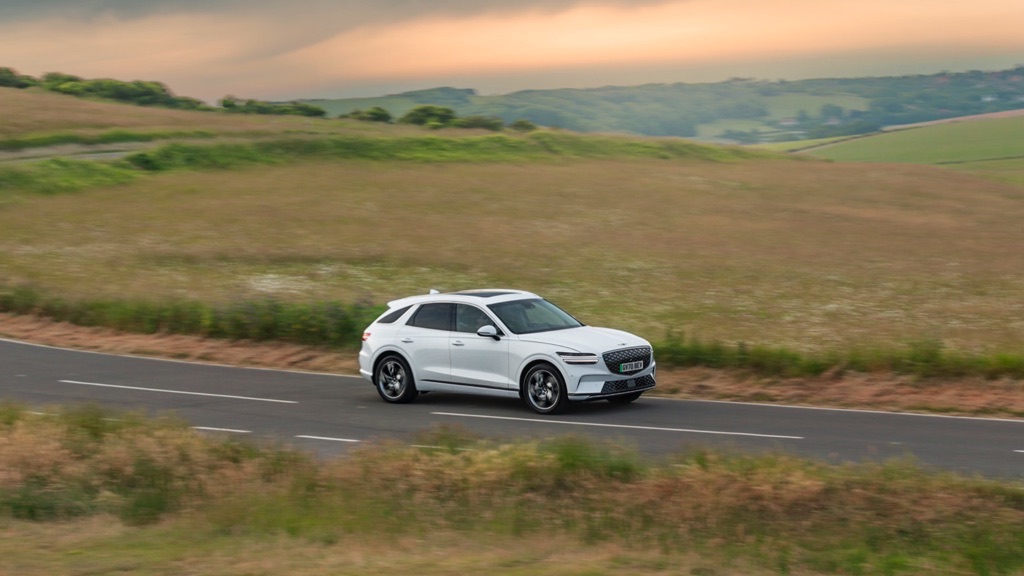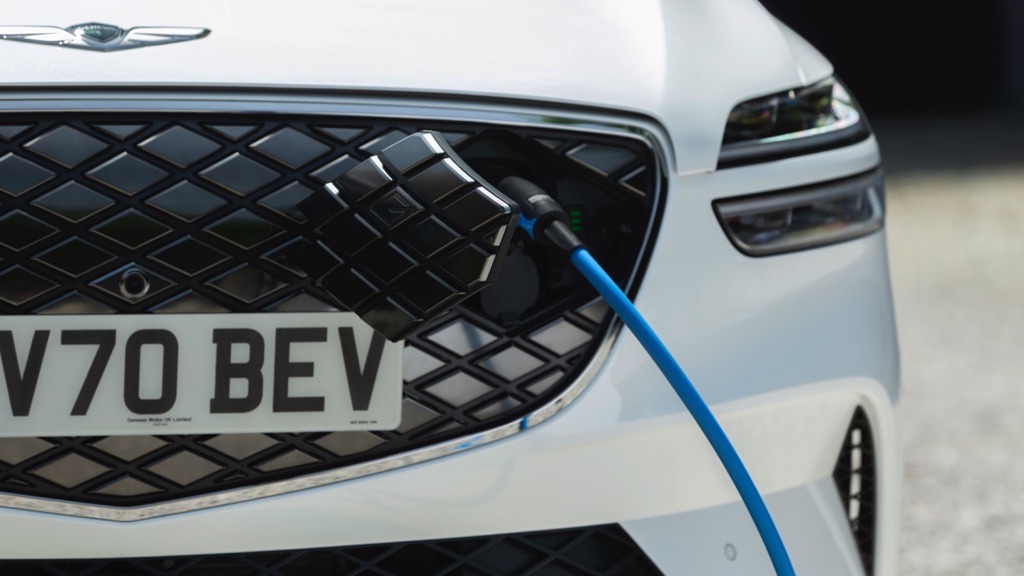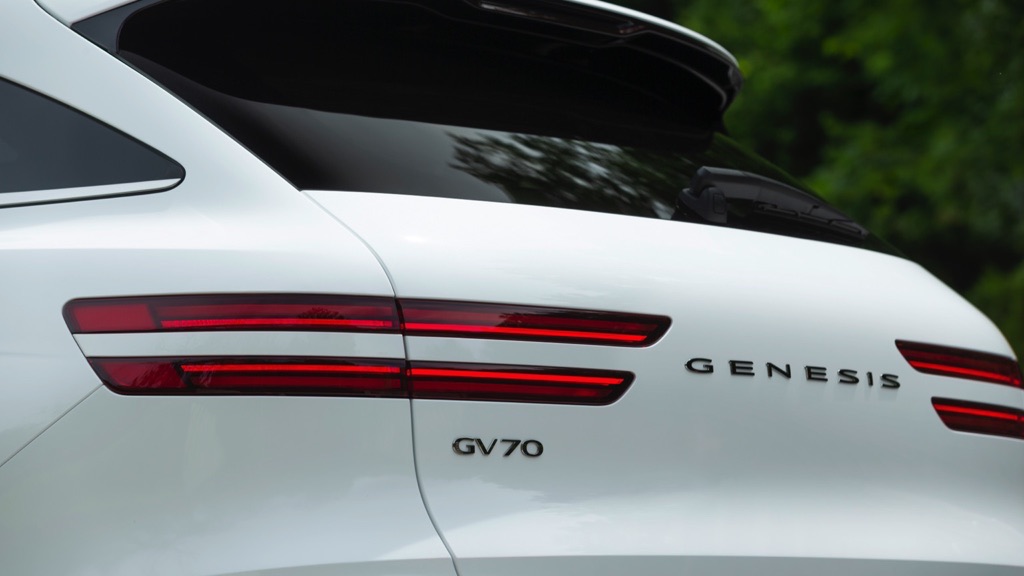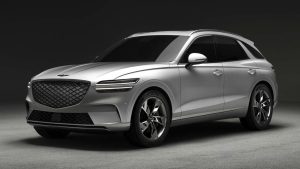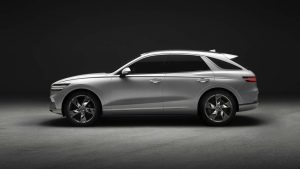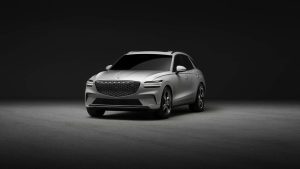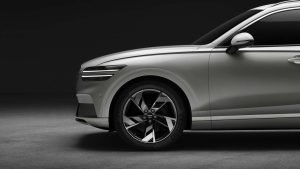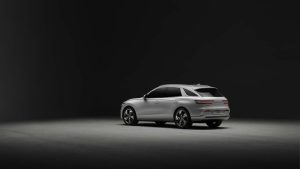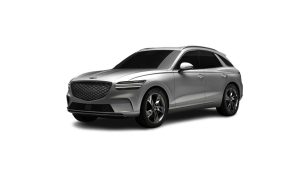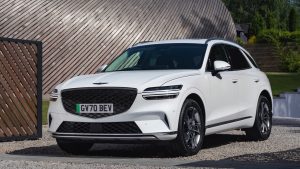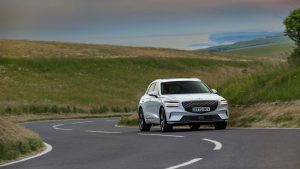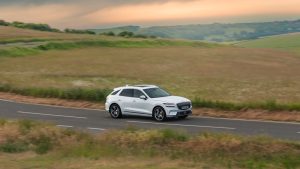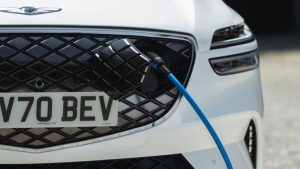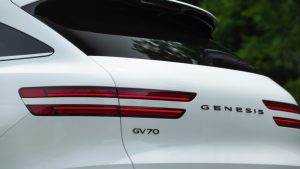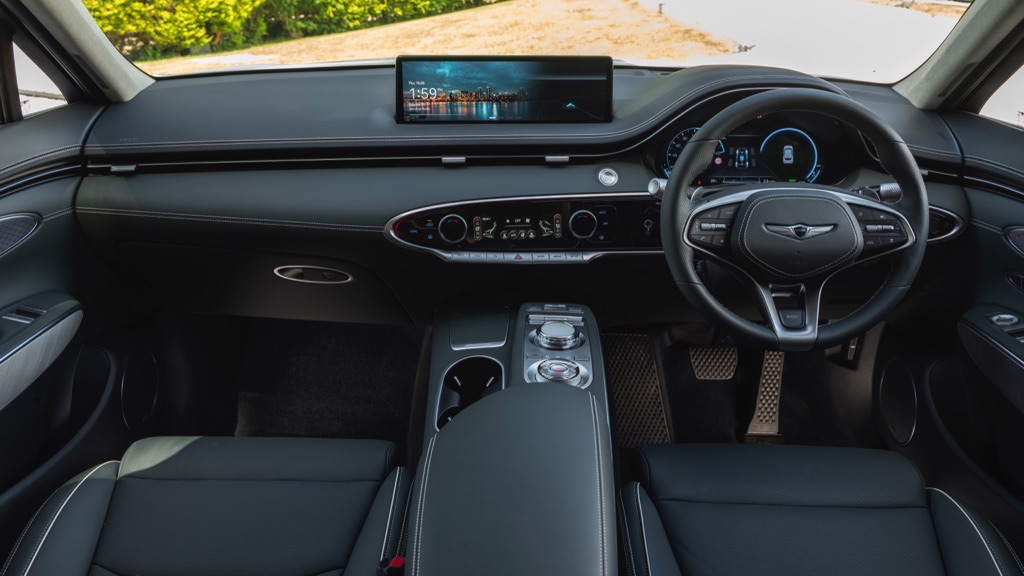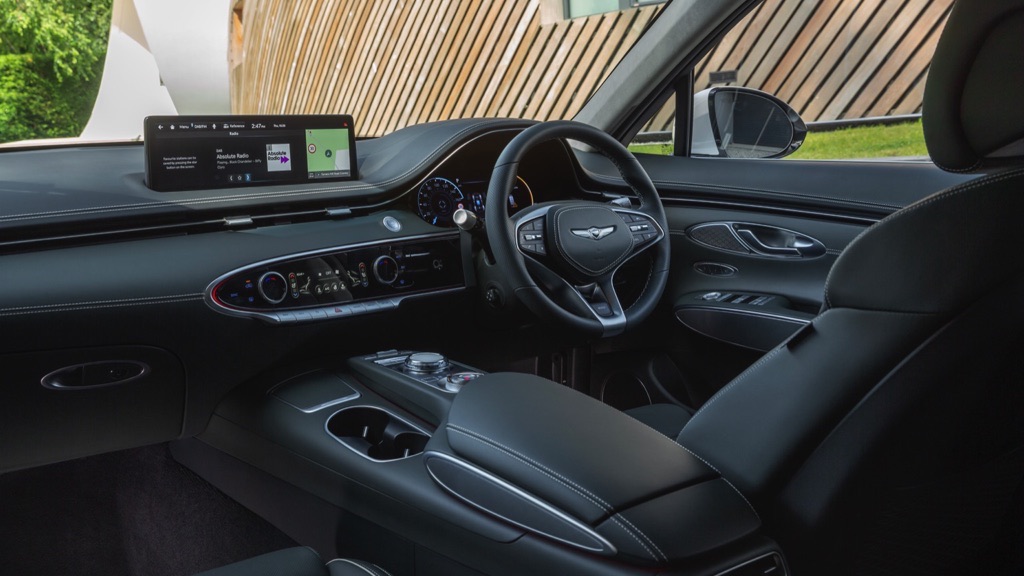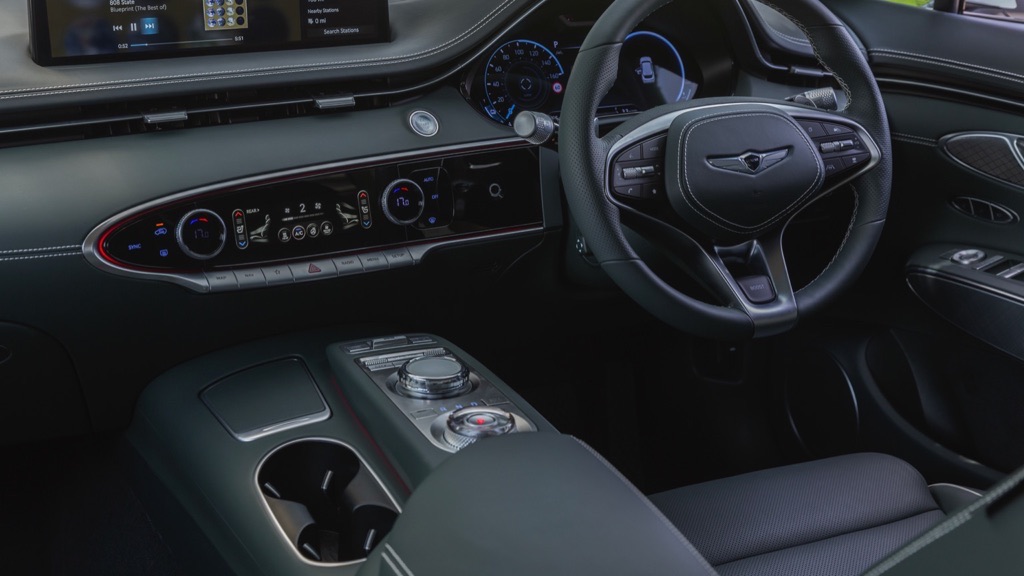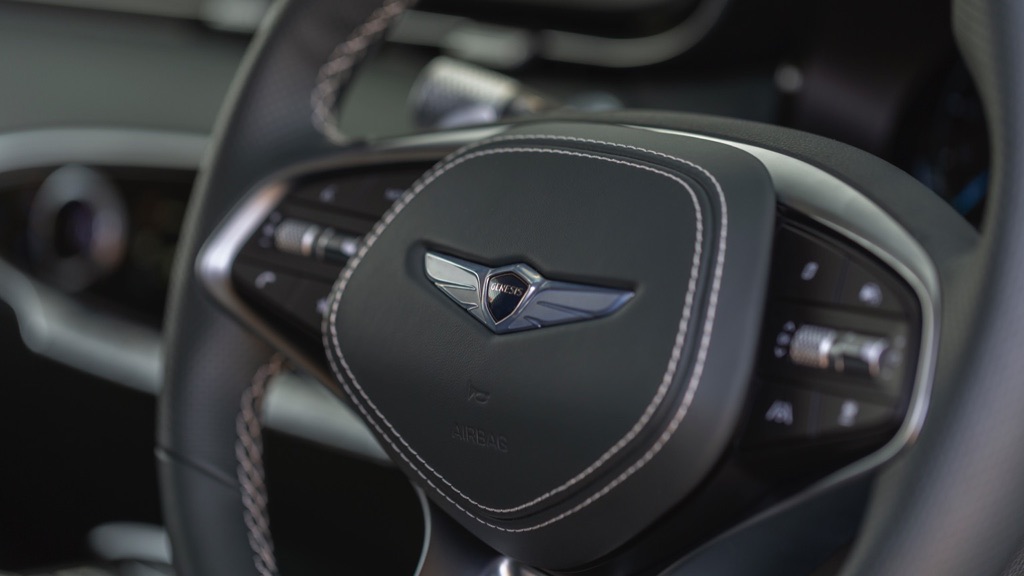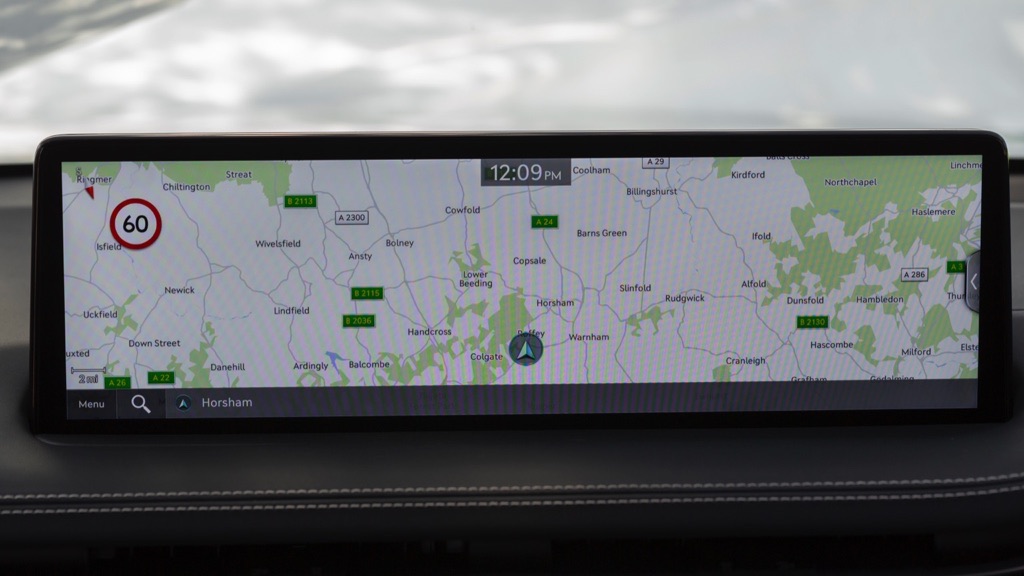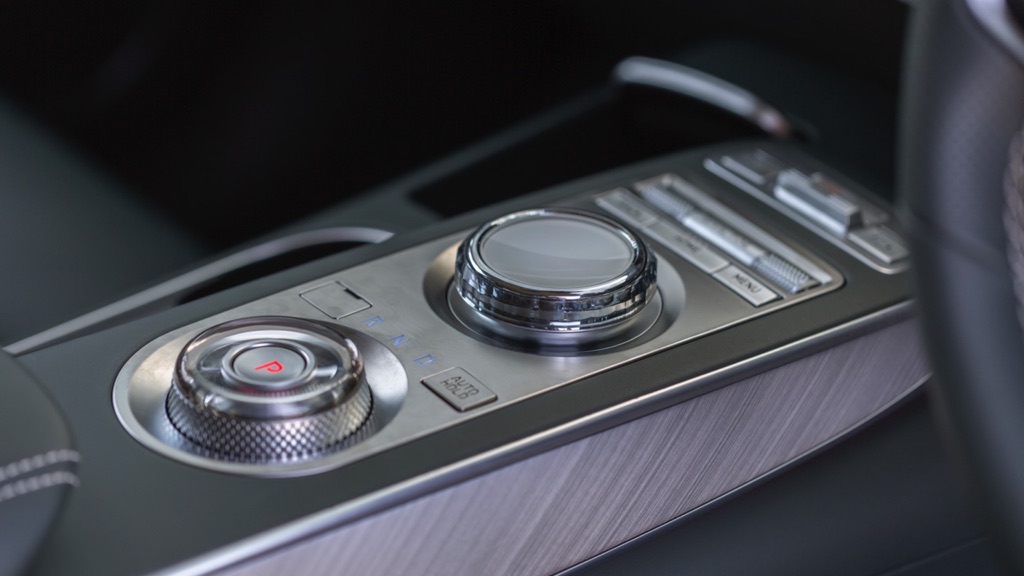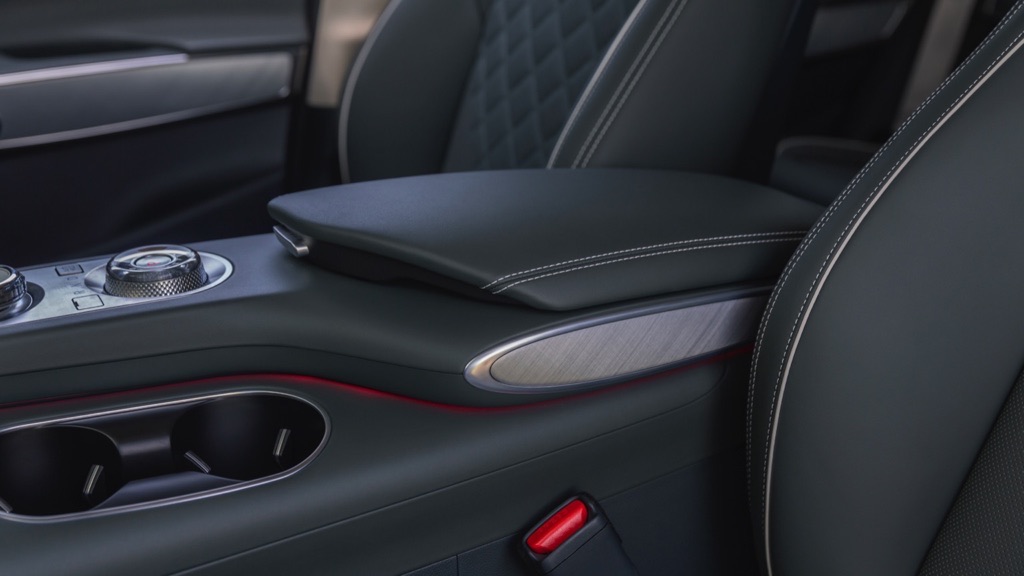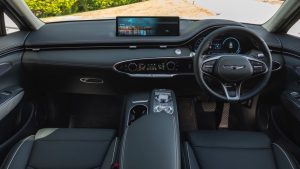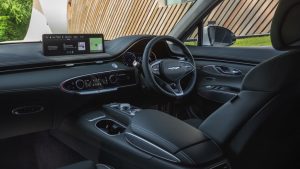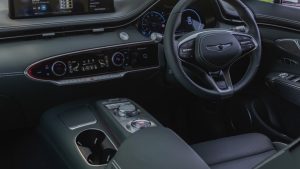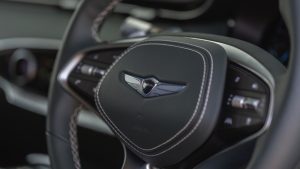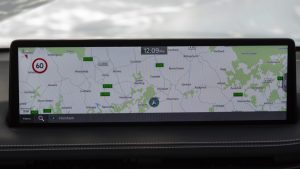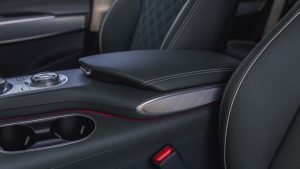Genesis GV70 Electrified Sport
The Genesis GV70 Electrified Sport is an upcoming electric SUV from the South Korean luxury automaker, Genesis. It is set to be the brand’s first electric vehicle and is expected to launch in 2022.
The GV70 Electrified Sport is expected to be a high-performance version of the standard GV70 SUV, with a powerful electric motor and sport-tuned suspension. It will likely have a range of around 350 km on a single charge and be able to accelerate from 0 to 100 km/h in under 4.2 seconds.
The GV70 Electrified Sport will also feature advanced driver assistance technologies, including autonomous driving capabilities, as well as a luxurious and high-tech interior with premium materials and state-of-the-art infotainment systems.
Overall, the Genesis GV70 Electrified Sport is expected to be a compelling entry in the luxury electric SUV market, offering high performance, advanced technologies, and luxurious features.
| Performance | |
| Acceleration 0 – 100 km/h | 4.2 sec |
| Top Speed | 235 km/h |
| Electric Range | 350 km |
| Total Power | 360 kW (489 PS) |
| Total Torque | 700 Nm |
| Drive | AWD |
| Battery and Charging | |
| Battery Capacity | 77.4 kWh |
| Battery Useable | 74.0 kWh |
| Europe | |
| Charge Port | Type 2 |
| Port Location | Front – Left |
| Charge Power | 11 kW AC |
| Charge Time (0->350 km) | 8 hours |
| Charge Speed | 44 km/h |
| Fast charge Port | CCS |
| FC Port Location | Front – Left |
| Fast charge Power (max) | 233 kW DC |
| Fast charge Time (35->280 km) | 17 min |
| Fast charge Speed | 860 km/h |
| Energy Consumption | |
| EVDB Real Range | |
| Range | 350 km |
| Vehicle Consumption | 211 Wh/km |
| CO2 Emissions | 0 g/km |
| Vehicle Fuel Equivalent | 2.4 l/100km |
| WLTP Ratings | |
| Range | 455 km |
| Rated Consumption | 192 Wh/km |
| Vehicle Consumption | 163 Wh/km |
| CO2 Emissions | 0 g/km |
| Rated Fuel Equivalent | 2.2 l/100km |
| Vehicle Fuel Equivalent | 1.8 l/100km |
|
Rated = official figures as published by the manufacturer. Rated consumption and fuel equivalency figures include charging losses.
|
|
|
Vehicle = calculated battery energy consumption used by the vehicle for propulsion and onboard systems.
|
|
| Real Energy Consumption Estimation between 147 – 296 Wh/km | |
| City – Cold Weather | 211 Wh/km |
| Highway – Cold Weather | 296 Wh/km |
| Combined – Cold Weather | 247 Wh/km |
| City – Mild Weather | 147 Wh/km |
| Highway – Mild Weather | 235 Wh/km |
| Combined – Mild Weather | 187 Wh/km |
|
Energy use for each trip will vary considerably depending on the driver and the conditions. Therefore, we have provided a range of estimates which can be useful in developing an understanding of the potential benefits of this technology.
|
|
| Dimensions and Weight | |
| Length | 4715 mm |
| Width | 1910 mm |
| Width with mirrors | 2165 mm |
| Height | 1630 mm |
| Wheelbase | 2875 mm |
| Weight Unladen (EU) | 2310 kg |
| Gross Vehicle Weight (GVWR) | 2845 kg |
| Max. Payload | 610 kg |
| Cargo Volume | 503 L |
| Cargo Volume Max | 1678 L |
| Cargo Volume Frunk | 25 L |
| Roof Load | 100 kg |
| Tow Hitch Possible | Yes |
| Towing Weight Unbraked | 750 kg |
| Towing Weight Braked | 1800 kg |
| Vertical Load Max | No Data |
| Miscellaneous | |
| Seats | 5 people |
| Isofix | No Data |
| Turning Circle | 11.5 m |
| Platform | No Data |
| Car Body | SUV |
| Segment | JD – Large |
| Roof Rails | Yes |
| EV Dedicated Platform | No |
Home and Destination Charging (0 -> 100%)
A public charging station is required to use the highest possible charging rate. The EVSE/charging station’s charging capacity affects how long it takes to fully charge the battery. The table below shows all possible options for fully charging the Genesis GV70 Electrified Sport.
In Europe, plugging an electric car into an outlet is often as easy as plugging it into a household outlet, but there are differences from country to country. The table below shows the different ways to charge the Genesis GV70 Electrified Sport, but in some countries, some chargers may not be available.
Type 2 (Mennekes – IEC 62196)

| Charging Point | Max. Power | Power | Time | Rate |
| Wall Plug (2.3 kW) | 230V / 1x10A | 2.3 kW | 38 hours | 9 km/h |
| 1-phase 16A (3.7 kW) | 230V / 1x16A | 3.7 kW | 23h45m | 15 km/h |
| 1-phase 32A (7.4 kW) | 230V / 1x32A | 7.4 kW | 11h45m | 30 km/h |
| 3-phase 16A (11 kW) | 400V / 3x16A | 11 kW | 8 hours | 44 km/h |
| 3-phase 32A (22 kW) | 400V / 3x16A | 11 kW | 8 hours | 44 km/h |
Fast Charging (10 -> 80%)
If you want to enjoy driving an electric car, one of the most important features to consider is the number of miles per hour the car can travel while charged. This is called the “range” of the car. All electric cars have a certain range, even if they are 100% charged. This is because they do not have an internal combustion engine to lean on if you need to drive a long distance.
Max. Power: The maximum power provided by the charging point
Avg. Power: The average power provided by the charging point during a session of 10% to 80%.
Time: the time it takes to charge from 10% to 80%
Speed: the average charging rate during the session of 10% to 80%
Combined Charging System (CCS Combo 2)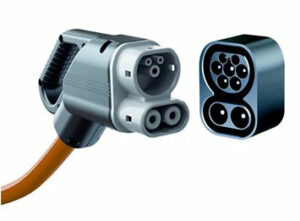
| Charging Point | Max. Power | Avg. Power | Time | Rate |
| CCS (50 kW DC) | 50 kW | 50 kW | 65 min | 220 km/h |
| CCS (100 kW DC) | 100 kW | 95 kW | 34 min | 430 km/h |
| CCS (150 kW DC) | 150 kW | 130 kW | 25 min | 580 km/h |
| CCS (175 kW DC) | 175 kW | 150 kW | 22 min | 660 km/h |
| CCS (350 kW DC) | 233 kW | 190 kW | 17 min | 860 km/h |
| Brand | Genesis |
| Model | GV70 Electrified Sport |
| Body Style | SUV |
| Car Engine | electric |
| Motor power | 360 |
| Maximum Torque, Nm | 700 |
| Battery Energy, kWh | 77.4 |
| Power reserve (NEDC/EPA/WLTP), km | - / - / 350 |
| Level Charging (230/400/DC), hours | 11.45 / 8.0 / 0.17 |
| Electrical Acceleration, 0-100 km/h (0-62.1 mph) in sec | 4.2 |
| Top Speed, km/h | 235 |
